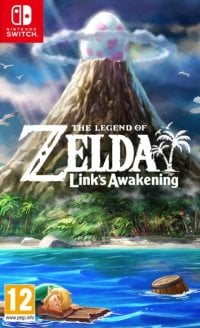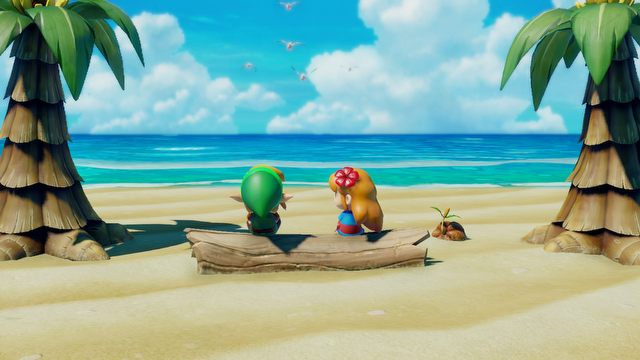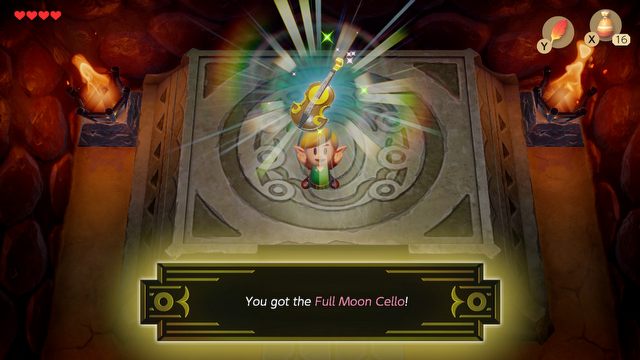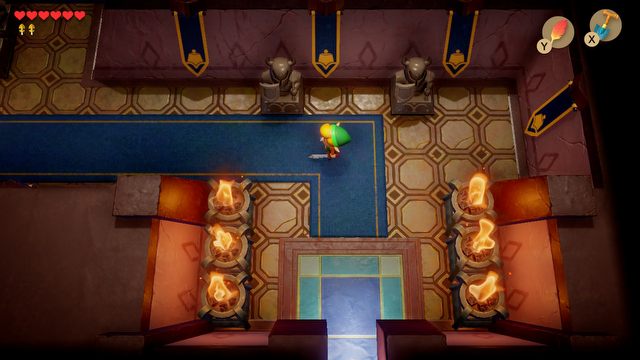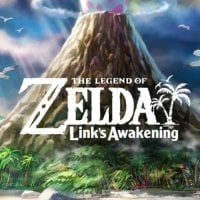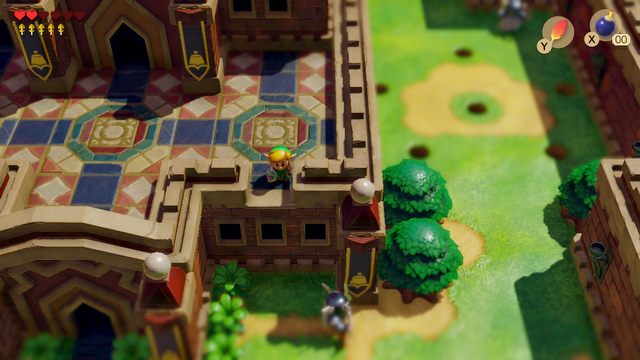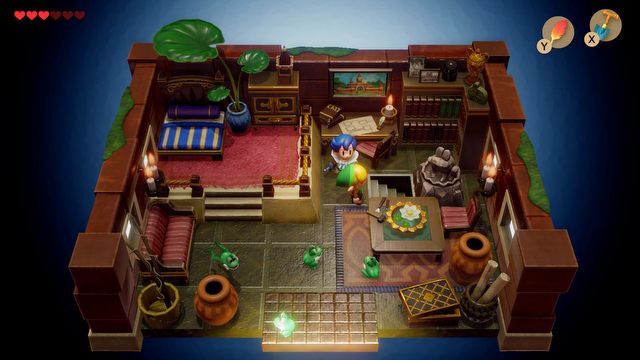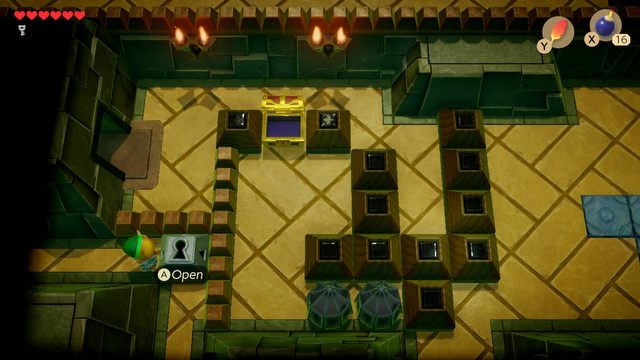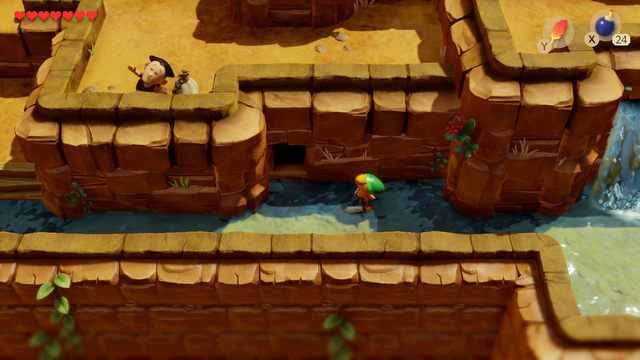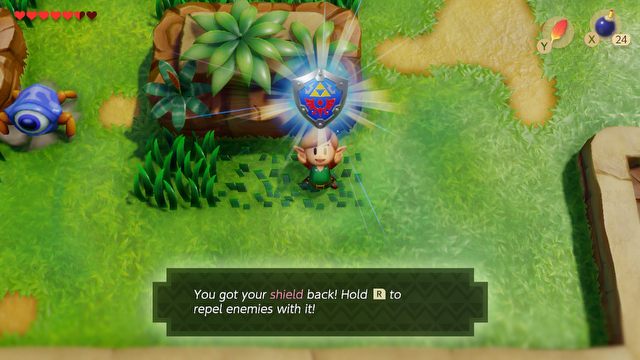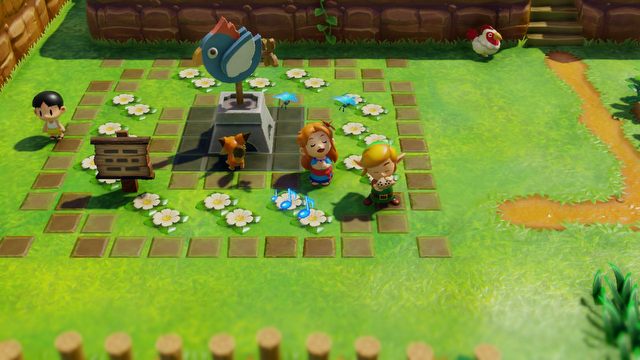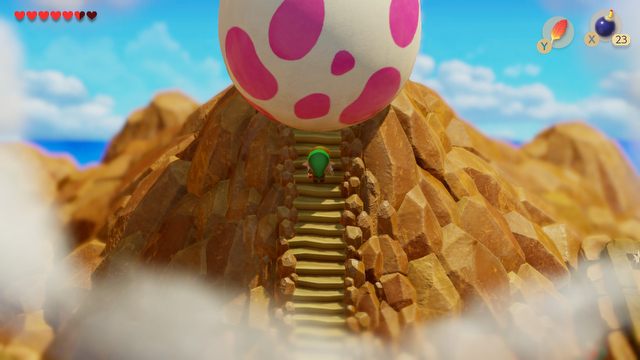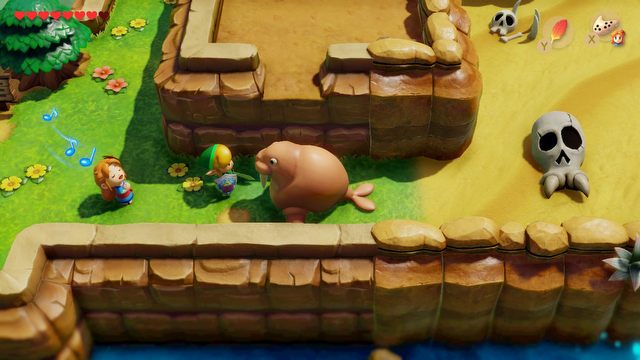The Legend of Zelda: Link's Awakening Review – Modern Oldschool Respecting the Original
We never have enough of The Legend of Zelda. This time, Nintendo again revisits the past to brush off the one of the best hand-held adventures of Link – Link's Awakening, originally created in 1993 for the Game Boy.
The review is based on the Switch version.
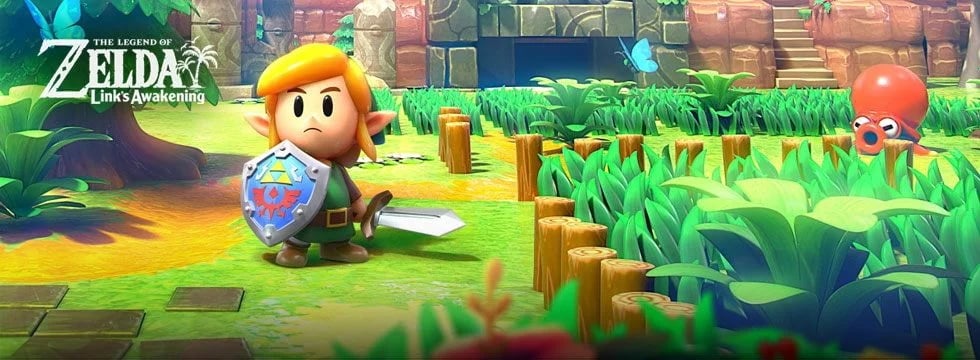
GameBoy, the cult portable console from the 90s is slowly fading into oblivion. The 4.19 MHz technological monster allowed kids to enter the world of Mario and Luigi, Pokémon, Ninja Turtles, Donkey Kong and many other heroes iconic for that generation of players. Today, twenty-six years after the release of the original console, those kids' children can see for themselves what game their parents flunked school for. The Legend of Zelda: The Link's Awakening is one of the best remasters of recent years. It not only enables you to get back to those wonderful times, but makes sure the return is as painless as possible. Most of the time, that is.
Released in 1993 for Game Boy, the game enjoys a cult status and is considered by many players the best installment of Link's adventures. But revisiting such holy grails of gaming is always a risky endeavor – this review of Link's Awakening will try to answer the question whether 30 years is enough to kill a “timeless classic.”
How's it so unique?
- the world is as diverse as always, although it uses the standard set of motifs;
- great story, not leading the player by the hand all the time;
- interesting plot twists;
- inventive bosses;
- simply: atmosphere of fun.
- dipping framerate;
- minor control issues;
- repeated prompts resulting in a few seconds of delay when picking up power-ups;
- not everyone will like the 'plastic' graphics.
During a powerful storm, Link crashes off the coast of the Koholint Island, where a certain fair, young lass finds him and brings him home. Although the game is filled with motifs typical for the series, we won't find neither the continent of Hyrule, nor the Tri-Force, Master Sword, nor even the title Zelda. This, rather original, take on the remaster derives from the story behind the production of this title, in which Shigeru Miyamoto, the creator of the earlier installments, hasn't participated. I of course mean the original version from the nineties – it was initially created during afterhours under the supervision of Takashi Tezuki. The famous Shigsy seemed to have more important stuff to do, so he only participated in Link's Awakening tests, from time to time sharing advice and experience.
One of the developers – Kazuki Morita – wanted to experiment with inventory and the ability to combine items. This "retrocrafting" was a visionary idea well ahead of its time, and was something fresh and bold in the game released for a mobile platform. I won't spoil you the pleasure of discovering the game yourself, but at the time of the original release, the game was truly extraordinary.
Therefore, the developers of Grezzo faced a serious challenge. The game enjoys a cult-classic status and was a real wonder years ago, so it definitely needed to provide a comparable quality in 2019. Grezzo was chosen for this task for a good reason – their back catalog includes two ports of The Legend of Zelda for 3DS: Ocarina of Time and Majora's Mask. Preparing a port, however, is a different pair of shoes than creating a game from ground-up, especially if it's supposed to stay so faithful to the legendary original. Cults and legends aside – the clock is ticking, times change, and getting the approbation of a new generation of players required a few adjustments in the mechanics, mostly with regard to the way inventory works.
Remember where you came from
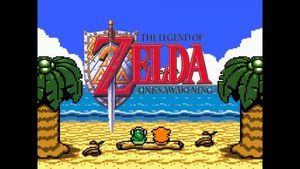
Link's Awakening was released in 1993 for the Game Boy. The graphics of this game seem rather amusing today (and some may find them nostalgic), but back in the day, the visuals really were something. In 1998, the game go a reissue on an improved Nintendo platform – Game Boy Color. The biggest addition were new screens from Sharp. The resolution reached a dazzling 160x144 p. Some addictive stuff right there.
The (un)familiar land
In terms of story, Link's Awaking is a highlight of the entire Zelda series. Tezuki was heavily influenced by the fantastic TV series, the original Twin Peaks, which is reflected in the story of Link. In order not to avoid spoilers, I shall only reveal that the goal is to find eight musical instruments that will allow us to awake a great whale, dormant in an egg atop a volcano. Only when this happens, will the main character be able to leave the island.
You could quite easily make the argument that if you've played just one of the Zeldas, it's like you've played all of them. Individual parts of course have different plot, oftentimes different items and mechanics, and, depending on the platform, they also differ in the way the world is presented, but the remaining elements are mostly identical across all games. Things are similar here – we won't find here the characteristic locations such as the Kakariko Village, Zora's Domain or the Hyrule Castle, but all of these are here, only under different names.
The game world is divided into a dozen or so regions, which appear on the map only after they've been discovered. The extremely handy map was, by the way, drawn with all the small details, and the ability to zoom in allows you to plan the trip in accordingly, so that you always know where you're going. Then, there are the teleports that enable you to instantly get to a remote location. Some place remain inaccessible until you get a special gadget that will let you reach them.
I don't wanna hold your hand
Everyone who ever played any of the games of the series, know perfectly well how gameplay that has all the seeming of a classic metrodivania, looks like. Exploration of the open world allows you to discover dungeons, where, in turn, you will find keys that open new rooms. In the unlocked rooms, we defeat minibosses, and finally get the special key that will let us face the ultimate boss of the entire game. Before that happens, however, we'll have to solve around a dozen puzzles, usually related to some new gadget we've just obtained. Therefore, the main task often boils down to figuring out how to use the given item. And I have to admit that this particular part of the mechanics is my favorite gimmick in these games. The puzzles are, of course, not rocket science, but finding the solutions can be quite satisfying anyway.
I wrote that the setting and the world of Link's Awakening is diverse and complex, and so there's a risk of getting lost or stuck. This, however, doesn't happen often, because the narration has been done with true mastery. If you're just paying attention to what's going on in the story, you shouldn't have problems figuring out what's what, even though some characters unsurprisingly use rather cryptic language. Still, you shouldn't feel lost too often, especially since the owls that we bump into every now and then give pretty precise directions. In case something goes really wrong, you can always resort to the phones scattered here and there – using them will promptly let you find your bearings. This solution may seem a bit bizarre and unfit for the general atmosphere, but it can come in handy. In dungeons, the owls also offer directions, but only after we find the lost beaks.
All in all, the puzzles found in the game are not especially difficult; they are, however, challenging enough that solving them can still give you some satisfaction, and encourage further exploration in search of new secrets.
Link's Awakening is also diversified by some mini games, such as fishing, or small, 2-D chambers. What's more, even some boss fights come in this form, which is a nice change from the standard slaughtering of cave and forest beasts. The even better news is that these don't happen too often, so there's no risk of saturation.
Apart from the main thread, we also get some side activities, such as collecting seashells (which can give you access to a special sword!), building your own dungeons, and completing a set of challenges from a certain character. I admit, though, that I wasn't particularly inclined to complete most of these activities. Building dungeons seemed a bit pointless for me, since you can only use elements of these locations that you've already visited, but I'm sure more avid fans of Zelda will be happy to complete these with all sorts of additional constraints – within a time limit, or without a sword. This element of the game is more of a sub-standard Super Mario Maker.
All that glitters is not gold
The way the story is conducted, the narration, the setting and the story – you can sing praises about all of those for days, because all these elements were combined thoughtfully, coherently, and end up giving tons of fun. But, as we know, perfect games don't exist, and it's no different in this case. The main issue is probably the inconsistent framerate. I usually connect my Switch to the TV, and at first, I thought this was the reason for the wavering performance. So I switched (hehe) to the mobile mode, and... it didn't help one bit. Dropping framerate usually happens out in the open world, in locations that stress the CPU, such as swamps. This doesn't spoil the fun entirely, but I was taken aback by such sloppiness in a game like this one.
The second issue is control. Eight-directions analog is not really what we expect from modern games. Also, the fact that transitions between directional animations are virtually non-existent makes it look pretty clunky, and is, in my books, a bad oversight. Even more so because it sometimes prevents the character from moving in the desired way, sometimes costing health points, or even life. For example, running/attacking can only be done in four directions, which doesn't help when we need to react quickly. It's hard to tell whether this is some residual constraint from the original, or just a design laxity.
The prompts informing every time about picking up power-ups were also quite irritating. This is perhaps the most old-school mechanic in the game. A few seconds of waiting cause short, but annoying pauses, which eventually led me to avoiding the power-ups altogether.
At the beginning of the game, we can choose one of two difficulty levels: Normal and Hero. I chose the former, but found it too easy after defeating a few bosses. It’s worth keeping this in mind before starting a new game, although it's true that boss fights have never been particularly difficult in any game in this series.
Instant classic!
The Legend of Zelda: Link's Awakening is another fantastic game from the acclaimed series, which is at least worth checking out, and may just become a mandatory position for Nintendo Switch. There's a great dose of respect towards the original, and still, the game doesn't seem outdated. Sure, some mechanics have become obsolete, and there's no way they can pass off as enjoyable even with the benefit of calling them oldschool. Still, the delivery in broader terms is so good that – as it's often the case with Nintendo – we're mostly willing to turn a blind eye on many shortcomings – and only the biggest nay-sayers will really complain.
For many people, this will be a completely reinvented game. It's even possible the game will be more enjoyable to all the people who never played the original. I assume many people my be disappointed with the graphics, which do look rather "plastic." Shaders have been overdone, making the whole game look a bit infantile (even for the series' standards). However, if you manage to overcome the initial reluctance, the game will more than make it worth it. Link's adventures on Koholint offer heaps of fun, even without the whole mythology we usually associate with the warrior dressed in green. If not for the technical shortcomings, the final score would be higher by 0.5.
ABOUT THE AUTHOR:
I love the Legend of Zelda series, but it was my first time with Link's Awakening. Because of that, I spent a lot of time on a rather thorough exploration of the world, looking for secret passages and other surprises. Finishing the game therefore took me about ten hours. Having become pretty familiar with the game world, I'd say you could beat the game in about five hours. Although the game in question really clicked with me, I still consider A Link Between Worlds for Nintendo 3DS console the best installment in the series.
The Legend of Zelda: Link's Awakening
We never have enough of The Legend of Zelda. This time, Nintendo again revisits the past to brush off the one of the best hand-held adventures of Link – Link's Awakening, originally created in 1993 for the Game Boy.
